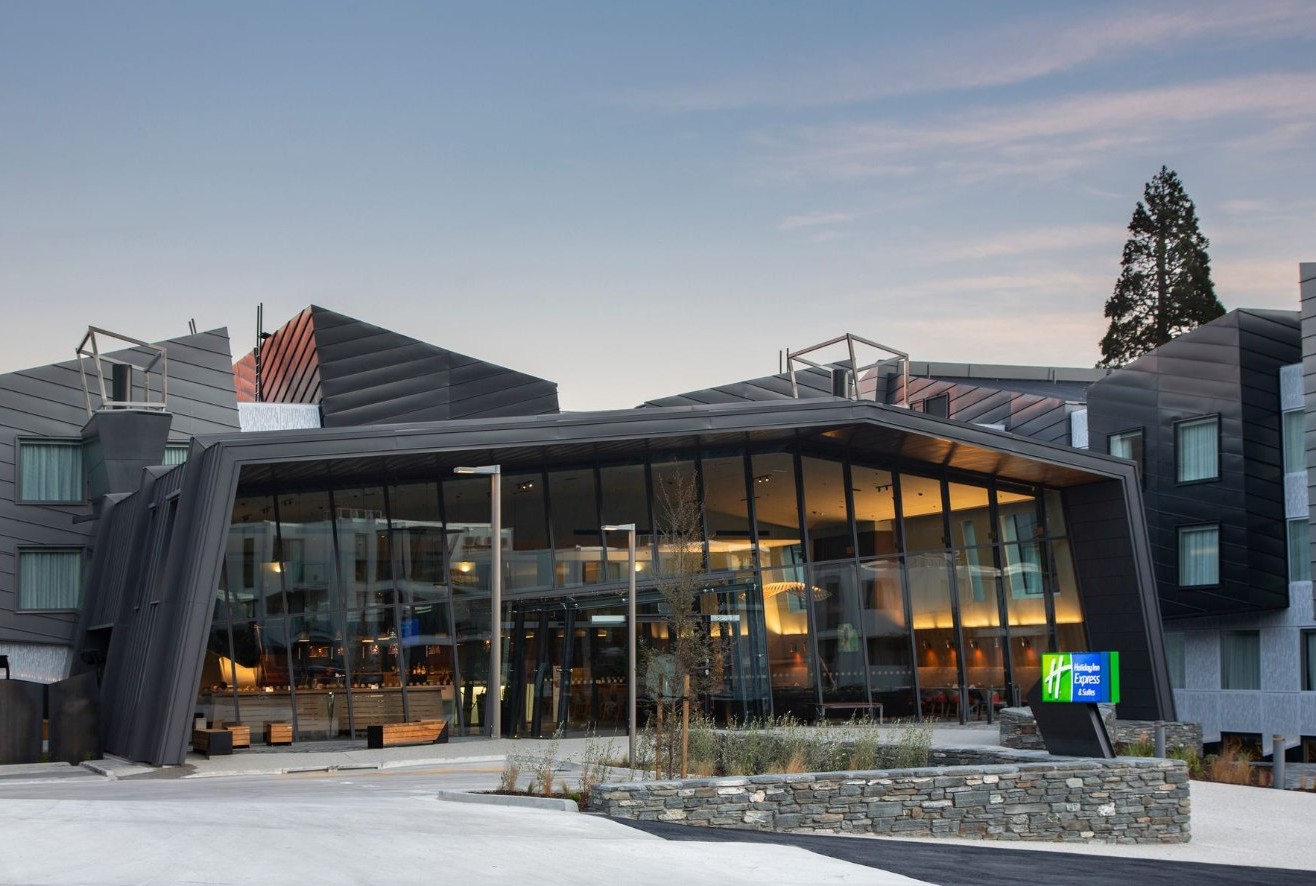Queenstown hotels losing hundreds of thousands - staff living in-house

Some hoteliers estimate as many as 10 percent of Queenstown’s almost 4000 hotel rooms remain out of service housing employees due to the resort’s serious staff housing crisis.
That potentially translates to almost $1million opportunity loss to the resort’s hotel economy during a peak ski season week when demand is at its highest.
It’s believed as many as 30 rooms in some hotel properties are still being utilised to house up to 60 staff, taking those off the visitor market.
Several Australian ski wholesalers believe they could bring more skiers to the resort town if they could access more room allocation over the peak period as we head into what’s being predicted to be a record season.
Holiday Inn Express Queenstown general manager Jason Sabin’s hotel – a popular downtown Aussie skier option, is close to being sold out in July. He says fortunately six dedicated staff rooms were purpose-built in the near new hotel. Like many employers Holiday Inn Express owns a staff house, but unfortunately the crisis has forced Jason to also block off five guest rooms, housing about 20 more staff.
It’s definitely affecting business with so much demand. “We’re heading into the peak ski season unable to maximise the returns for our owners because these rooms have been taken out,” says Jason.
Hospitality NZ Accommodation Sector Chair Central Otago Caryln Topp says she has two of her 25 four-and-a-half-star, $600 a night Highview Apartments off the market at present, housing staff.
She’s choosing to look after staff over filling rooms. This past few weeks she’s had staff, who appear happy, work for a day then not turn up the next without explanation.
In the past Carlyn’s also had two staff living in cars. It’s also happening in Wanaka where she recently sold her apartment complex. “It’s hugely affecting workers’ health which in some cases means they’re not able to come to work,” she says.
Heritage general manager Kevin Kluts says he’s rented large, quality Fernhill homes for staff housing and now only has two to three hotel rooms out for staff. “We put several in a room, as we feel responsible for these kids who are here, fresh from overseas.”
Millennium operations manager Gordon Bulloch says 40 to 50 of the company’s adjacent Copthorne Hotel’s 250 rooms are off the market housing staff across its three hotels.
Unfortunately, it’s still necessary to use hotel rooms for staff in order to attract staff. “We’re fortunate we can do it. The stories are quite frightening,” says Gordon.
Hotel St Moritz general manager Jo Finnigan says many hotels, including St Mortiz, are housing staff in-house. “It’s far from ideal, however, we’re extremely grateful to our owners for allowing this to happen.” Despite other staff issues they probably would have more rooms to sell if suitable housing could be found for valued staff. It’s an issue causing a great deal of stress and uncertainty for people and families in all business sectors locally, she says.
Hospitality NZ Regional Manager Darelle Jenkins says operators have gone “above and beyond” to help staff get a roof over their heads. “They’re in the hospitality business. It’s all about caring for people,” she says. “It’s a high-pressure environment. Everyone takes a lot on their shoulders. They’re amazing humans. A lot of these people are givers and we really need staff to look after their well-being.”
The number of hospitality people who are under mental health pressure is alarming, she says. HNZ rolled out Healthy Hospo workshops in Queenstown recently focusing on leadership and mental health, with those running almost full.
While Queenstown grapples with an ongoing shortage of worker accommodation some developers are exploring developing worker accommodation developments that stack up financially. At least one developer is underway with early plans to develop a staff accommodation complex and it’s understood they are exploring several site options in Frankton and closer to town, but it’s still in the very early stages.
“We have a good accommodation model,” he says. “It definitely has to be new, otherwise you’re just shifting the problem around.”
While building costs have been a deterrent, it’s believed other potential parties are also interested in coming up with specifically designed staff accommodation concepts.









